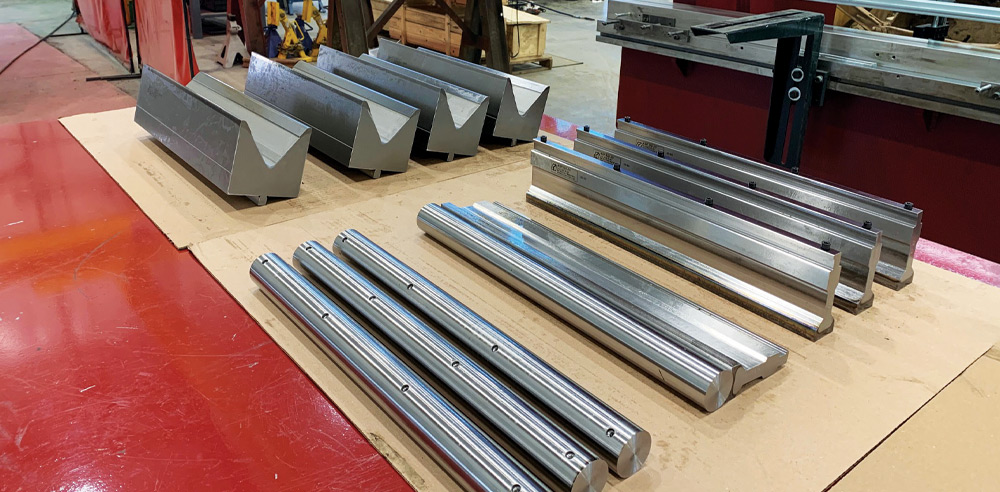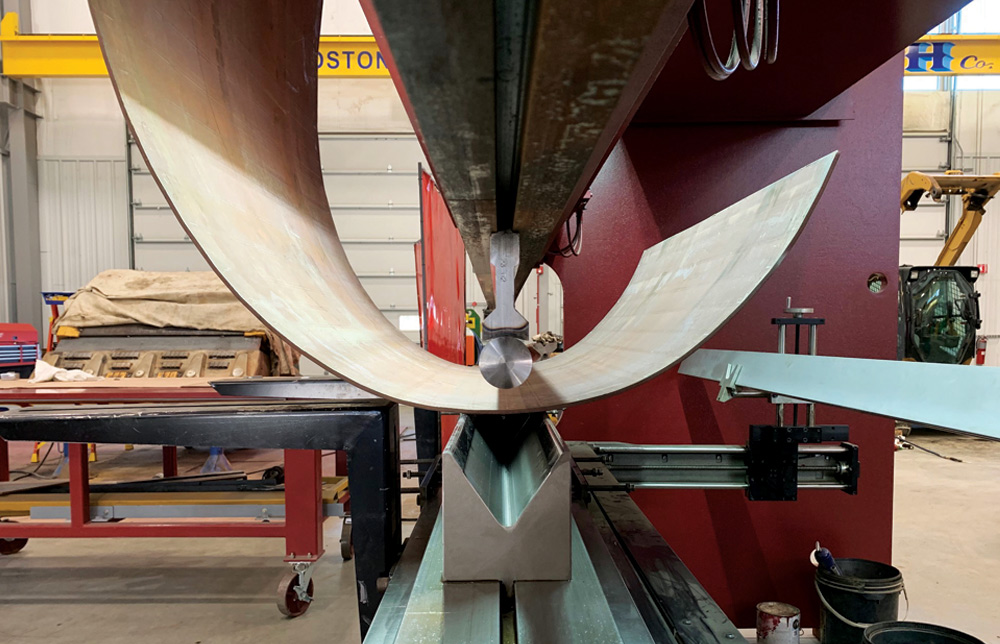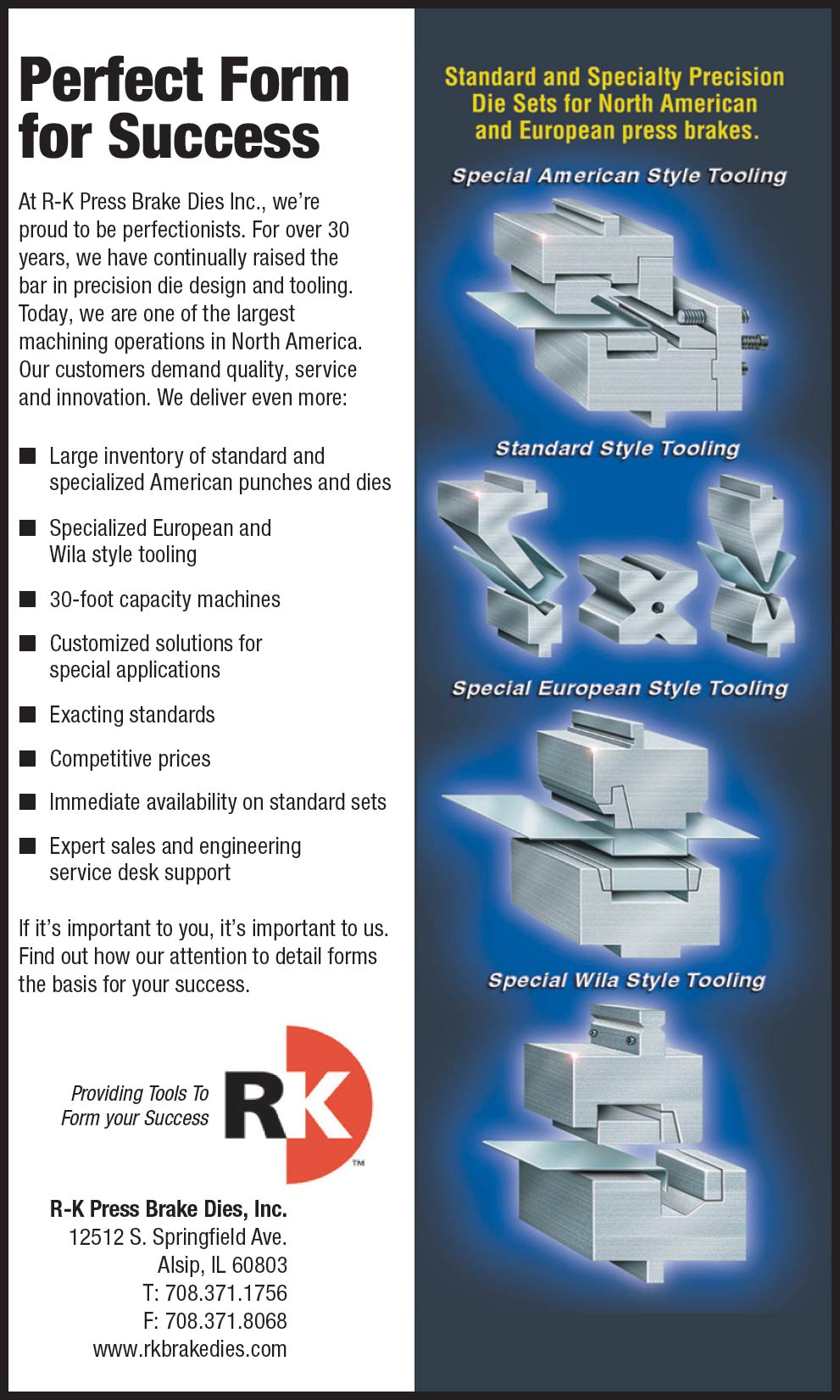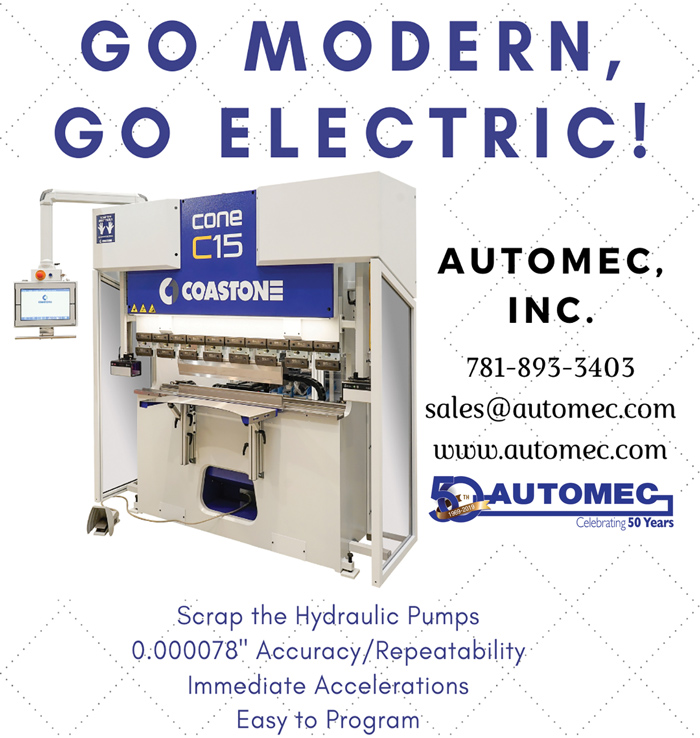Rolleri analyzed parts and press brake capacity to design/build tooling that could withstand tough materials.
he W. L. French Excavating Corp. is used to pushing obstacles out of the way. The family-owned business based in North Billerica, Massachusetts, provides a wide range of construction services from mass excavation and soil management to site development, transportation, disposal and snow services. Its motto “We move Boston,” is fitting for a company that moves millions of cubic yards of earth annually, prizes its employees and is deeply embedded in its community. W. L. French needed an equally tough tooling solution to bend parts from Hardox 450 steel up to .50-in. thick using a 325-ton press brake.
Hardox is one of a number of alloys that have been designed to resist abrasion. These materials are in high demand for structural parts in industries like mining, agriculture and construction. Precision press brake tooling manufacturer Rolleri has studied AR steels and their applications since 2008 to help companies like W. L. French harness the advantages of these “super” metals.

 Bending AR steels like Hardox requires a unique combination of knowledge and tooling.
Bending AR steels like Hardox requires a unique combination of knowledge and tooling. 
“The problem is that bending AR steels like Hardox requires a unique combination of knowledge and tooling,” he continues. “Hardox’s higher strength means it has greater capacity to absorb energy, but it’s also prone to cracking because of its lower ductility. You can only eliminate cracks by using a larger V-die opening. For 1-in. thick Hardox 450 plate, you need at least a 12-in.V-opening and a 14-in. opening when forming thicker plate. The same concept applies to the upper tool radius. The V-opening should be approximately 4 in. If it’s smaller the material will crack.”
Part analysis and evaluation of press brake capacity led Rolleri engineers to design/build a V-die with an 8.5-in. opening and a 70-degree angle. The die’s upper tool was engineered with a 2.25-in. radius and a 70-degree angle. Tool capacity was rated at 60 tons per ft.

“Rolleri really educated us about the requirements needed to bend specific materials,” says Beaudoin. “We learned why this type of tooling requires special treatment to withstand the rigors of working with Hardox plate and how these materials react to the bending process.”
The custom made tools were installed at W. L. French’s maintenance facility in November 2020. “Inspection revealed the superior quality of the tooling,” says Beaudoin. “Their technicians helped make assembly of the package flawless. And we’re making the parts we need to keep our equipment moving.”

